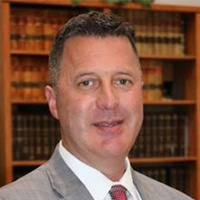Rogersville Criminal Lawyer, Missouri
Scott Gregory Taylor
✓ VERIFIEDDivorce & Family Law, Workers' Compensation, Personal Injury, Criminal
Scott G. Taylor graduated from St. Louis University School of Law in 1993 and was admitted to the Missouri Bar that same year. Scott previously attend... (more)
Jeffrey C. Goodnight
Adoption, Alimony & Spousal Support, Animal Bite, Criminal
Status: In Good Standing
Stuart P. Huffman
Litigation, Estate Planning, Family Law, Criminal, Insurance
Status: In Good Standing
David F. Sullivan
Criminal, Americans with Disabilities Act , Bad Faith Insurance, Animal Bite
Status: In Good Standing Licensed: 49 Years
Teresa Grantham Fiester
Criminal, Personal Injury, Accident & Injury, Litigation
Status: In Good Standing
Williams George Crowe
Estate Planning, Estate, Criminal, Accident & Injury
Status: In Good Standing Licensed: 47 Years


